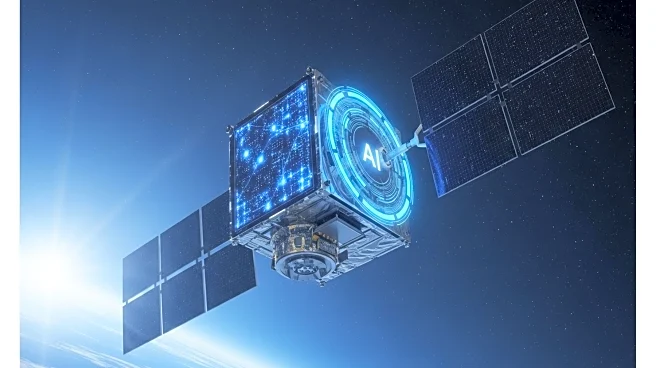What's Happening?
Brian O'Toole, CEO of BlackSky, shared insights on the company's latest contract with the National Geospatial-Intelligence Agency (NGA) during the World Space Business Week in Paris. The contract, part of the LUNO program, focuses on using commercial space data and analytics to solve mission-oriented problems. O'Toole emphasized the growing role of AI in geospatial intelligence and the importance of sovereign space capabilities. He highlighted BlackSky's efforts in delivering sovereign solutions in countries like Indonesia and India, combining commercial data, remote sensing, and AI. The conversation also touched on the race to deliver near real-time imagery from space and the potential for commercial opportunities beyond defense.
Why It's Important?
The discussion underscores the increasing significance of AI and commercial partnerships in the space industry. As governments and private entities invest in space capabilities, the integration of AI-driven applications offers practical use cases that enhance intelligence operations. BlackSky's approach to sovereign solutions reflects a broader trend towards national autonomy in space capabilities, which could reshape global space policies and defense strategies. The emphasis on real-time imagery and analytics highlights the demand for rapid, actionable intelligence, which is crucial for national security and commercial applications.
What's Next?
BlackSky plans to continue expanding its satellite constellation and enhancing AI capabilities to deliver more accurate and timely intelligence. The company aims to strengthen its vertical integration by leveraging its acquisition of LeoStella, a satellite manufacturing partner. This will enable BlackSky to manage everything from design and production to AI-powered intelligence software. The focus on sovereign systems and partnerships worldwide suggests potential announcements of new collaborations and advancements in AI applications.
Beyond the Headlines
The shift towards AI-driven space solutions raises ethical and operational questions about the balance between human and machine roles in intelligence gathering. As AI becomes more integrated into space operations, transparency and trust in AI-generated insights will be critical. The development of sovereign space capabilities also prompts discussions on international cooperation and competition in space, as countries seek to protect their assets and maintain strategic advantages.









